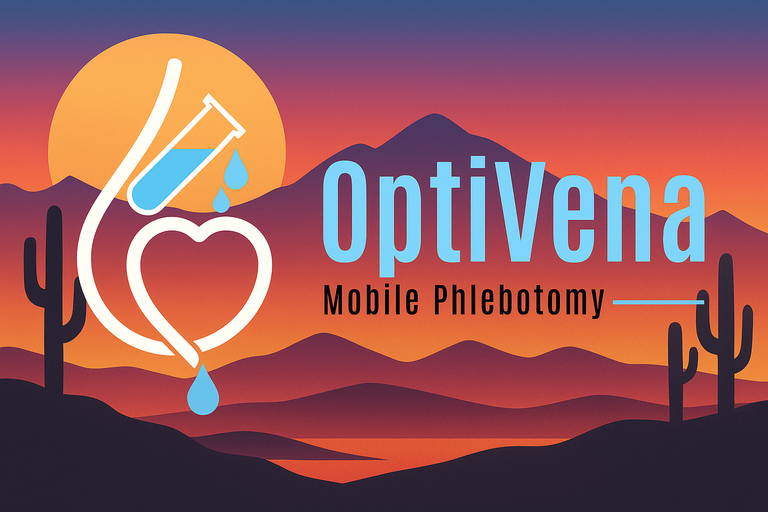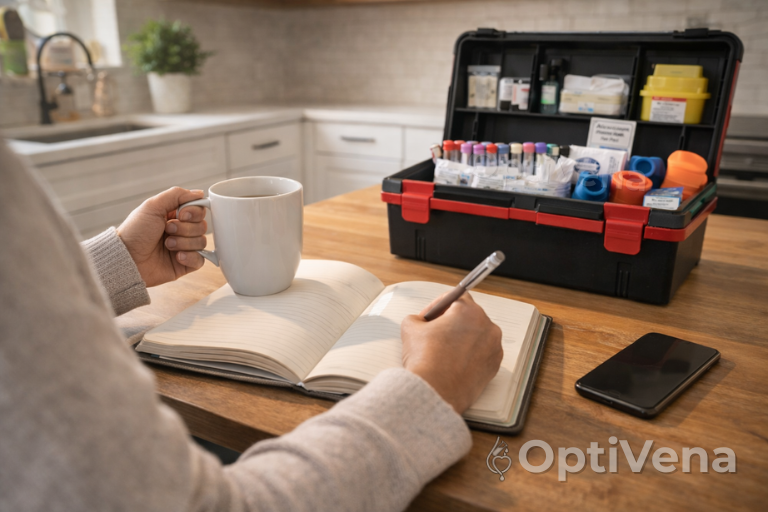Blood Work & Brainpower: What Tempe’s Students Should Know About Mental Health Markers

College life in Tempe is fast-paced, demanding, and often stressful. Between balancing classes, late-night study sessions, social life, and sometimes even full-time work, students may find themselves exhausted or anxious without knowing why. While counseling and lifestyle changes are important, there’s another piece of the puzzle that often goes overlooked: blood work. Your labs can reveal markers that directly affect focus, mood, and mental health.
Why Mental Health and Blood Work Are Connected
Mental health is often seen as purely emotional, but the body and brain are deeply linked. Certain vitamin and hormone levels play an essential role in how we feel, how much energy we have, and even how well we sleep. When students experience issues like brain fog, fatigue, or mood swings, it could be due to imbalances in:
> Vitamin D – Low levels are linked to depression and low energy, even in sunny Arizona.
> Vitamin B12 – Vital for nerve function and focus; deficiencies can cause memory problems or fatigue.
> Iron and Ferritin – Too little iron can lead to anemia and brain fog, while too much may cause other health issues.
> Thyroid Hormones (TSH, T3, T4) – Thyroid imbalances often mimic depression or anxiety.
> Cortisol – The body’s stress hormone, often elevated in overworked or sleep-deprived students.
Stress, Sleep, and the College Lifestyle
Tempe, home to Arizona State University, has one of the largest student populations in the country. With students studying late into the night, drinking coffee or energy drinks to stay awake, and sometimes skipping meals, the body is under constant stress. Over time, these habits can affect lab markers:
> Irregular sleep schedules can raise cortisol levels, leaving students anxious and restless.
> Poor diet choices may lower vitamin D, B12, and essential minerals.
> Excess caffeine and stress can strain adrenal function.
Blood work can provide a snapshot of how these habits are impacting health — and reveal underlying issues that counseling alone can’t address.
The Role of Preventive Health in Student Success
Many students wait until they feel burned out or ill before seeing a doctor. But preventive lab testing can help identify problems early, allowing students to adjust diet, lifestyle, or treatment before academic performance suffers. Imagine catching a vitamin deficiency before finals week or spotting early thyroid issues before they derail a semester.
Even beyond physical health, students often feel validated when lab results confirm what they’re experiencing. It helps remove the stigma around mental health by showing that the brain and body are connected.
Why At-Home Blood Work Makes Sense for Students
For students in Tempe, scheduling a lab visit can be time-consuming and stressful. Between finding transportation, waiting in long lines, and fitting it into a packed schedule, many put it off. That’s where mobile phlebotomy comes in.
At OptiVena Mobile Phlebotomy, we bring the lab to you — whether that’s your student apartment, dorm, or shared housing. Our professional phlebotomists arrive on your schedule, collect your samples quickly, and deliver them to the lab for processing. The result: less disruption, less stress, and faster answers.
Common Questions Students Have
“Can blood work really show why I’m tired all the time?”
Yes. Fatigue often has physical roots — like anemia, low vitamin D, or thyroid imbalance — which can all be seen in labs.
“What if my insurance doesn’t cover it?”
We offer self-pay options, and many tests are surprisingly affordable. Investing in preventive health may save money later by preventing bigger issues.
“Do I need to go to a doctor first?”
Yes, a lab order from a provider is required for most tests. We also accept prepaid lab orders from telehealth and online providers, making it even easier.
The Bigger Picture
Mental health support on campus often focuses on counseling, workshops, and stress management techniques — all important tools. But adding lab testing to the conversation gives students a full-circle approach to wellness. If the body is lacking key nutrients or if hormones are out of balance, no amount of study hacks or therapy sessions will fully solve the problem. Labs can reveal the missing link.
By combining traditional support with physical health insights, students can set themselves up for better focus, improved mood, and long-term success.
Takeaway
College in Tempe is exciting, but it comes with stress. Blood work is a powerful, often overlooked tool for understanding how physical health impacts mental health. Whether it’s checking vitamin D, thyroid function, or stress hormones, labs provide answers that can change lives.
OptiVena Mobile Phlebotomy makes it easier than ever for Tempe students to stay on top of their health. We handle the details — you handle your future.
Book your at-home blood draw today. Lab work, simplified.






